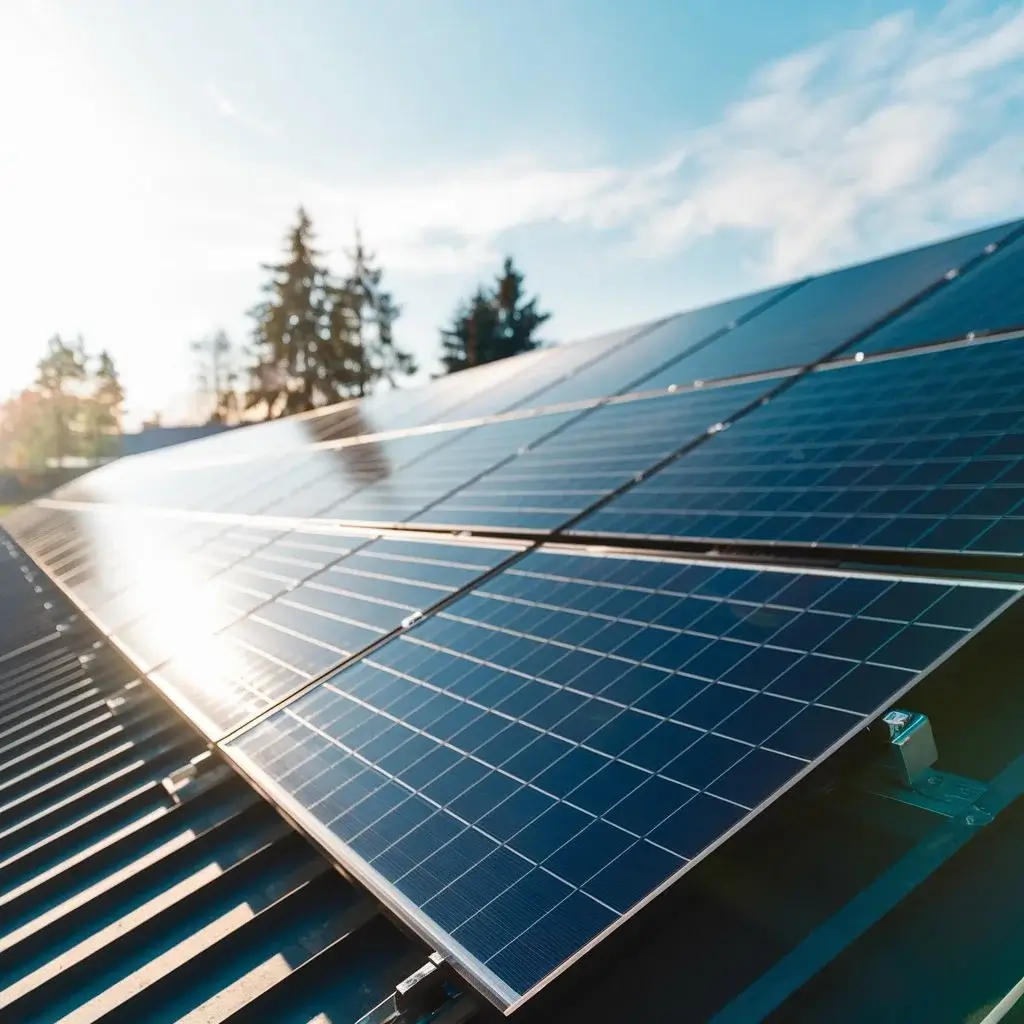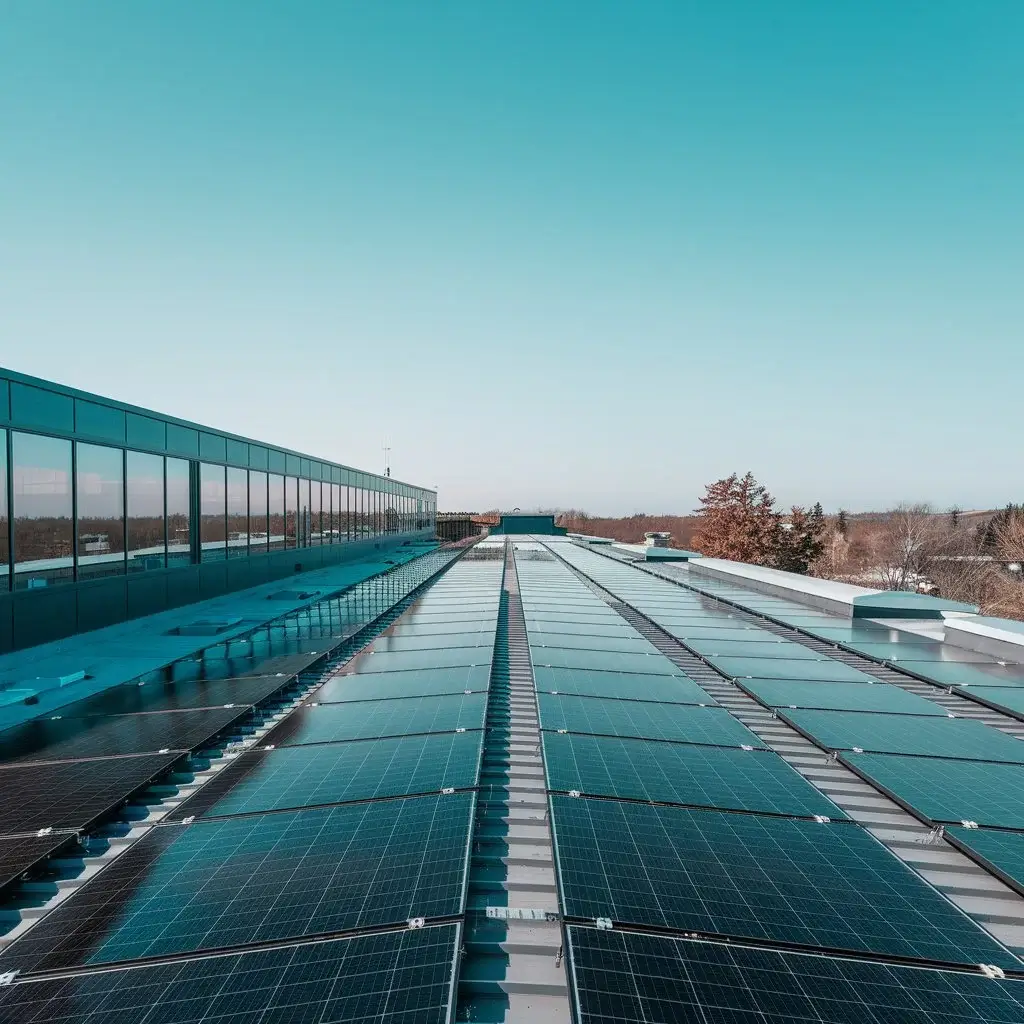Sun energy is clean renewable energy; hence, it can be consider as a sustainable source of energy. Photovoltaic cells produce electricity right from the sunlight that is absorbed by solar panels. An inverter then transforms DC to AC required for home and business usage by people or companies.

How Solar Panels Work
Solar cells are what solar panels are comprised of and are photocells. What is worth noticing is that such cells are usually developed from silicon, which is a semiconductor. Sunlight works on those cells and separates electrons from the atoms available in the solar cells. Here an electrical current is generated and this one is regulated by the electric wiring systems. The solar inverter also transforms this electricity from direct current to alternating current making it useful to power equipment and appliances.
Types of Solar Panels
In the market, there are three main categories of the solar panels, these are the monocrystalline panels, polycrystalline panels, and thin film panels. Single crystal PV panels are the most effective and also long lived ones. They are made of a single piece of crystal thus they provide high yield of energy. There is monocrystalline which is more efficient, and then there is polycrystalline panels which are cheaper and marginally less efficient. Thin film panels are somewhat portable and somewhat flexible; but are far less efficient than crystalline panels.
Installation of Solar Panels
Introducing the installation process, it is necessary to point the fact that it starts with the site assessment. A technician considers your roof’s construction and how much exposed area it gets throughout the day. As has been mentioned earlier, the optimal position of the solar panels varies depending with the geographical location. In most places, the most electricity is produced by ‘south-facing panels’. On installation of the solar panels, they only need little maintenance and can work up to more than 25 years.
Benefits of Solar Panels
Others are; Solar energy is clean and cuts on carbon emissions. It assists to reduce the reliance on fossil fuel such as coals and oils. Furthermore, using solar power cut expenses on electricity tariffs and shield against increasing energy prices. Governments usually provide evident to consumers and developers through such mechanisms as incentives and tax credits for using solar energy. Solar panels likewise add value to homes and businesses for own use or for rent or sale.
Solar Panel Efficiency
The efficiency of a solar panel therefore measures the ability of a solar panel to cover the sunlight and transform it to electricity. The efficiency of most panels is in the range of 15% and 22%. That is in relation to temperature changes, shading, and the panels orientation. , it is worth saying that the latest technologies of solar panels such as bifacial panels have enhanced the efficiency of the solar panels. Such a configuration is operational on two facets, meaning that the panels can harness light from two faces and this would enhance energy yield.

It is thus important to determine the environmental impact of solar panels?
There is a lot to learn about benefits of solar panels such as they are completely friendly to the environment. They cut out on greenhouse emission and can be of great help in the fight against climate change. Solar energy is a clean power resource as compared to energy generated from fossil fuel power plants since it releases no pollutants. Another advantage of solar panels is the water utilization, as it does not require water for cooling as most of turbines. Moreover, the use of solar energy systems can involve battery storage, that will provide electricity during the night.
Solar Panel Cost
There has been a tremendous progress on the cost of solar panel in the last decade. Currently, there are many residential and commercial properties where installation of solar energy is more cheap than before. Generally the pricing of solar panels varies depending with the size, type and installation requirements. Some of the factors include solar financing which include purchase of solar panels through loans and leasing services. Due to the rebates and incentives provided by so many governments the total cost is brought down significantly.
Solar Panels for Homes
Domestic solar panels for home can supply all the electricity needed in a home. Homeowners also, can invest in other solar gadgets such as batteries to store energy that is surplus. This stored energy is useful during the periods when there is little sunlight as in night or during any black out. Residential solar power systems, or photovoltaic systems, are normally mounted on houses’ roofs. There are also ground mounted systems for those who have enough space in their backyard to accommodate them.
Solar Panels for Businesses
Here are some advantages of installing and using solar panels in businesses; Commercial solar plants cut operating expenses with a view of minimizing electricity bills. Solar energy also helps to build a company’s image because clients and customers love organizations that care for the environment. Government incentives must be encouraged because most establishments tap into them to cut the costs of installation. Furthermore, they are also flexible and can be designed to serve the need of large scale commercial ventures.
Solar Panel Maintenance
Location Solar panels are easy to maintain, so most of the times they don’t need any form of maintenance. Cleaning of the surfaces regularly assists in fashioning a conducive environment that the solar panels can absorb the most sunlight. The rain usually is enough to wash the panels, but in such dry regions as the one shown in the picture the panels may require washing from time to time. Reporting can be in form of flagging of performance and any problem which may occur. A majority of the solar panels have a warranty of 20-25years to provide for long-term and sound performance.
Challenges of Solar Energy
As with all many other sources of energy, solar energy has its own constraints though they have brought many advantages with them. There are expenses that are inherent in the technology right from the start and while it is possible to get funding to meet these costs. Energy production from them is also determined by the wind which at certain times is not steady and therefore the production of energy form them is not steady as well. New battery storage technologies are emerging and it is still a very expensive business. For the information, there is some questions concern the solar panel manufacturing since the whole process uses energy-saving materials.
Future of Solar Panels
Technological advancements on solar is that it is constantly improving offering more efficient and affordable certain technologies. More promising examples are the solar roof tiles and the so-called ‘transparent solar panels for home ’ that are opening new horizons. Other similar efforts are also being made to identify new resources that can be effectively used for panel manufacturing in a sustainable manner. The use of solar energy has become common and the world goal for energy will be met by covering the energy needs through solar energy.
The Effectiveness of Solar Panels and Its Relation with the Government
A large number of countries provide subsidies and other kinds of motivation to persons and companies in an effort to promote the use of solar energy in their lands. These incentives range from tax credit to rebates and the feed in tariffs. For example, the United States has an established federal tax credit in installation of solar facilities. This credit enables homeowners and business to reduce the amount that they pay to the government in taxes by some percentage of the costs. There are other programs that other countries also have for the reduction of cost of solar energy systems.
Some of the areas of specialization include; Solar Energy and Grid Integration.
Solar power is a type of energy that is still can be connected to the electrical grid. During the time that homes or businesses will be producing more solar panels for home energy than they require or are willing to use, they can sell it to the utility. This process is called net metering. It gives an opportunity to the users of solar power to get paid for the electricity which they generate. The former takes place in some cases where utility scale solar power plants inject the energy directly into the electricity grid to power entire neighborhoods.
Conclusion
The solar panels for home allow use of solar based energy which is an effective and renewable energy source. It supplies alternative source of energy, saves on electricity expenses, and encompasses environmentally friendly measure. When solar technology exhibited a progression in the available energy equipment, it will play a crucial role in energy resource delivery. Currently there are incentives from the government and costs are coming down, this means it is right time invest in solar energy.






